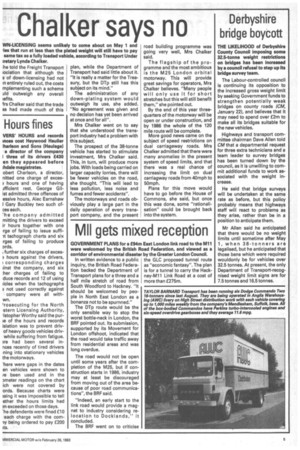Chalker says no
Page 7

If you've noticed an error in this article please click here to report it so we can fix it.
WN-LICENSING seems unlikely to come about on May 1 and les that run at less than the plated weight will still have to pay same tax as a fully loaded vehicle, according to Transport Under :rotary Lynda Chalker.
he told the Freight Transport ;ociation that although the a of down-licensing had not In entirely ruled out, the costs mplementing such a scheme lId outweigh any overall iefits.
Its Chalker said that the trade ss had made much of this plan, while the Department of Transport had said little about it. "It is really a matter for the Treasury, but the DTp still has this subject on its mind."
The administration of any down-plating system would outweigh its use, she added. "No agreement was given and no decision has yet been arrived at once and for all".
Mrs Chalker want on to say that she understood the transport industry had a problem with this subject.
The prospect of the 38-tonne vehicle has started to stimulate investment, Mrs Chalker said. This, in turn, will produce more jobs. With loads being carried on larger capacity lorries, there will be fewer vehicles on the road, she thought. "This will lead to less pollution, less noise and fumes and fewer accidents".
The motorways and roads obviously play a large part in the daily operation of every transport company, and the present road building programme was going very well, Mrs Chalker said.
The flagship of the programme and the most ambitious is the M25 London orbital motorway. This will provide great savings for operators, Mrs Chalker believes. "Many people will only use it for short stretches but this will still benefit them," she pointed out.
By the end of this year threequarters of the motorway will be open or under construction, and by 1986 the whole of the 120 mile route will be complete.
More good news came on the subject of speed restrictions on dual carriageway roads. Mrs Chalker admitted that there were many anomalies in the present system of speed limits, and that there was a real chance of increasing the limit on dual carriagway roads from 40mph to 50mph.
Plans for this move would have to go before the House of Commons, she said, but once this was done, some "rationalisation" could be brought back into the system.
















































































